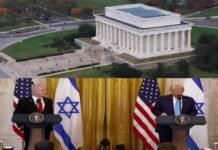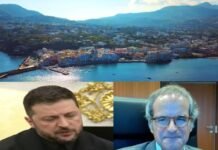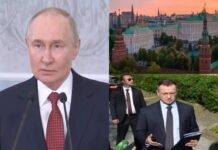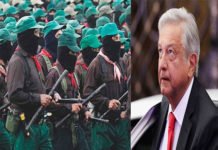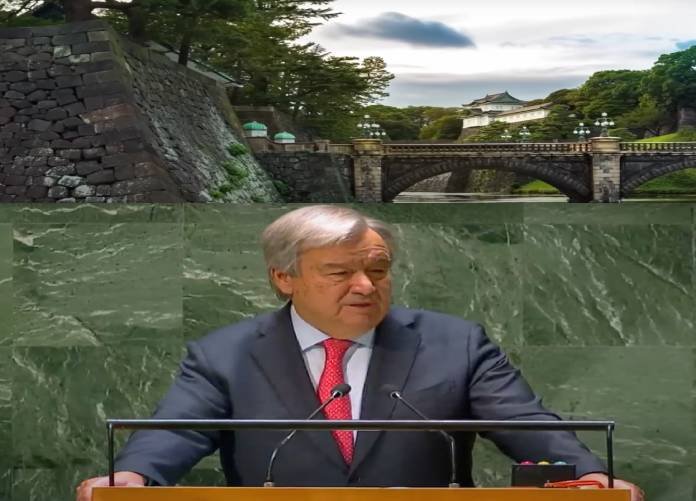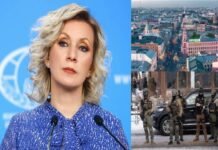*** Hiroshima And Nagasaki: 80 Years
*** No Sanctions: No One is Responsible
*** Historians Prone to Forgetting
*** Mary de la RIVERA -Entrañable- Amiga y Colaboradora de The UNIVERSE News y EL UNIVERSO. Traduce la -Información- Del Inglés al Español.
El ‘Objetivo’ de Las Bombas: Los “Civiles”
*** Hiroshima y Nagasaki: 80 Años
*** Sin Sanciones: Nadie es Responsable
*** Los Historiadores Tienden a Olvidar
By DANTE GONZALEZ / Special to The UNIVERSE News / EL UNIVERSO.
San Antonio, TEXAS.- It is August, the month that marks 80 years since the bombing of Hiroshima and Nagasaki. To date, these remain the only nuclear attacks recorded in human history.
{Es agosto, el mes en que se cumplen 80 años desde el bombardeo de Hiroshima y Nagasaki. Hasta la fecha, estos siguen siendo los únicos ataques nucleares registrados en la historia de la humanidad.}
The only tragic thing is the consequences that the populations still suffer. Russia recently commemorated these catastrophes that took place on August 6 and 9, 1945.
{Lo único trágico son las consecuencias que aún sufren las poblaciones . Rusia ha recordado recientemente estas catástrofes que tuvieron lugar los días 6 y 9 de agosto de 1945.}
Humanity witnessed one of the most terrible events in its history: the US used nuclear weapons. Against civilians for the first time, by dropping an atomic bomb on the Japanese city of Hiroshima.
{La Humanidad presenció uno de los acontecimientos más terribles de su historia: EE.UU. utilizó armas nucleares. Contra civiles por primera vez al lanzar una bomba atómica sobre la ciudad japonesa de Hiroshima.}
Three days later, on August 9, Nagasaki was also bombed. Both attacks claimed the lives of more than 170,000 people. The tragedy of a military operation that affected the future of humanity.
{Tres días después, el 9 de agosto, Nagasaki también fue bombardeada. Ambos ataques se cobraron la vida de más de 170.000 personas.Tragedia de una operación militar, que afectó el devenir de la humanidad.}
“The bombing of Hiroshima was a brutal demonstration of American power. And a crude attempt to justify huge financial investments in the nuclear program.”
{“El bombardeo de Hiroshima fue una brutal demostración del poder estadounidense. Y un burdo intento de justificar enormes inversiones financieras en el programa nuclear.”}
Despite the fact that the efficiency of the bomb itself was extremely low [less than 2% of the uranium entered into the fission reaction], even this was enough to completely destroy the city,” the statement said.
{A pesar de que la eficiencia de la bomba en sí, era extremadamente baja [menos del 2% del uranio entró en la reacción de fisión]. Incluso esto fue suficiente para destruir completamente la ciudad”, detalla el comunicado.}
“Neither President HARRY TRUMAN, nor his successors ever apologized for the suffering caused to the inhabitants of Hiroshima and Nagasaki and their descendants.”
{“Ni el presidente HARRY TRUMAN ni sus sucesores, se disculparon alguna vez por el sufrimiento causado a los habitantes de Hiroshima y Nagasaki y a sus descendientes.”}
“However, the Japanese authorities prefer to hide the American origin of this tragedy, which is incomprehensible to those who witnessed such a monstrous act,” the ministry’s statement added.
{“No Obstante, las autoridades japonesas prefieren ocultar el origen estadounidense de esta tragedia, lo que no se explican aquellos que vieron tan monstruoso acto,” añade la declaración del ministerio.}
The document states: “Western historians remain determined to conceal the tragedy that unfolded, attempting to justify this barbaric act by claiming the need to force Japan’s surrender.”
{El documento afirma: «Los historiadores occidentales siguen decididos a ocultar la tragedia que se desarrolló, intentando justificar este acto bárbaro alegando la necesidad de forzar la rendición de Japón».}
However, the Russian Foreign Ministry pointed out that by then, the Japanese armed forces were already on the verge of exhaustion, and the decisive factor in Japan’s final defeat was the Soviet Union’s entry into the war on August 8, 1945.
{Sin embargo, la Cancillería rusa precisó: que para entonces las fuerzas armadas de Japón ya estaban al borde del agotamiento, y el factor decisivo en la derrota final de Japón fue la entrada en la guerra de la Unión Soviética el 8 de agosto de 1945.”}
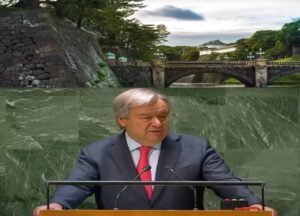
Meanwhile, UN Secretary-General ANTONIO GUTÉRRES, recalling these nuclear bombings, argued that “the same weapons that caused so much devastation in Hiroshima and Nagasaki are once again being used as tools of coercion.”
{En tanto, el secretario general de la ONU, ANTONIO GUTÉRRES, al recordar estos bombardeos nucleares, arguyó que “las mismas armas que causaron tanta devastación en Hiroshima y Nagasaki vuelven a ser utilizadas como herramientas de coerción”.}
Once again, the episode of his memory lapse is emphasized: at no point did he mention the US, nor did he make any comment about its responsibility for these attacks.
{“Nuevamente, se vuelve a insistir sobre el episodio de falla en su memoria: en ningún momento mencionó a EE.UU., ni realizó ningún comentario sobre su responsabilidad en estos ataques”.}
This is not the first time this has happened. In previous commemorations, both Japanese and UN authorities have omitted Washington from their speeches.
{Algo que no es la primera vez que ocurre. En conmemoraciones anteriores, tanto autoridades japonesas, como de la ONU, han omitido a Washington en sus discursos.}
As stated international experts, there is a campaign to erase historical memory. They point out that what GUTÉRRES is doing is playing with words to forget the issue and avoid pointing the finger at those responsible.
{Según expertos internacionales: hay una campaña de desmemoria histórica. Al indicar que lo que hace Gutérres es un juego de palabras para olvidar el tema y no señalar a los responsables}.
“In relation to the statement from the Russian Foreign Ministry, it points out that “it touches on the historical part that the West wants to forget. It was the action of the Soviet Union’s troops that defeated a huge [Japanese] army in Manchuria and overwhelmed them until they surrendered.”
{En relación al comunicado de la Cancillería rusa, apunta que “toca la parte histórica que Occidente quiere olvidar. Fue la acción de las tropas de la Unión Soviética la que derrotó a un enorme ejército [japonés] en Manchuria y lo arrollaron hasta su rendición.”}
While we talk about the ruling classes, it seems that they have forgotten history: right now, Japanese leaders are rewriting a warmongering history and rearming themselves.
{Mientras hablamos de las clases dirigentes, parece que han olvidado la historia: ahora mismo los dirigentes japoneses están reescribiendo una historia belicista, se están rearmando.}

